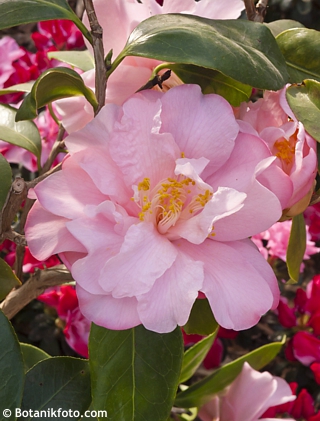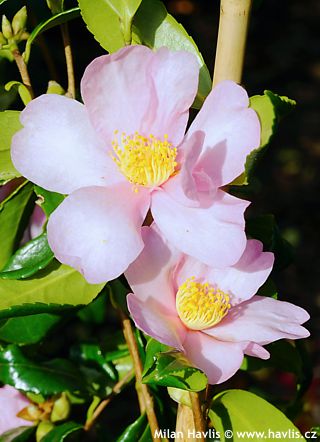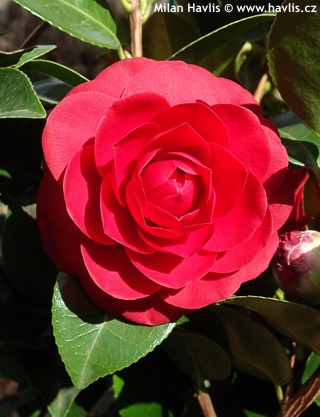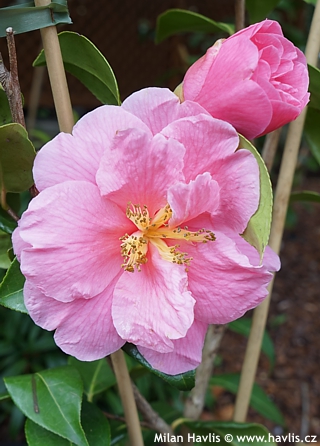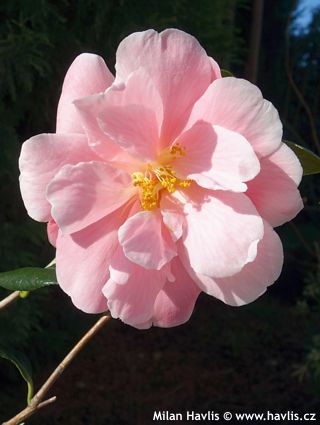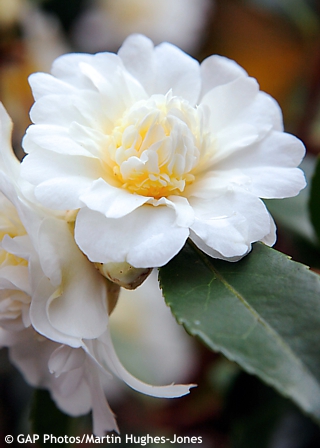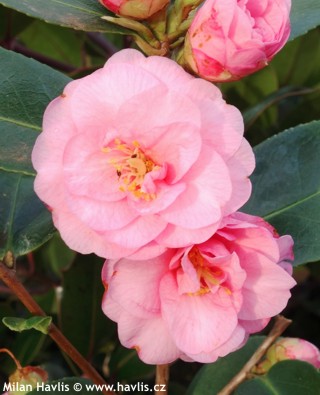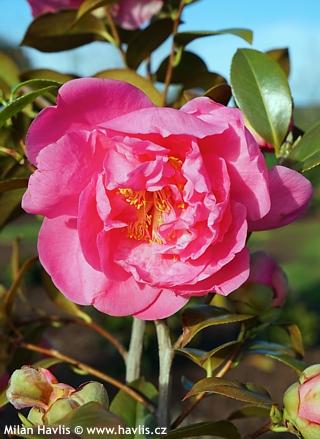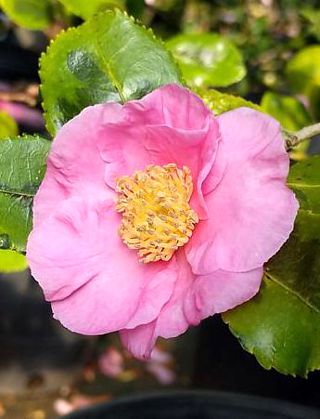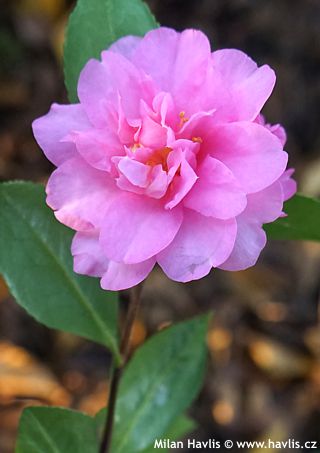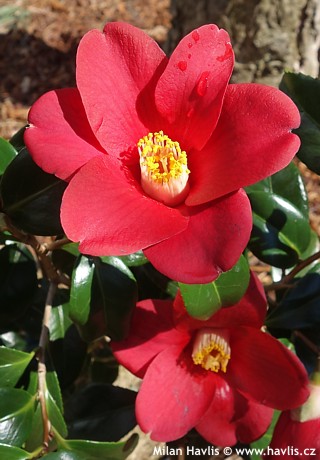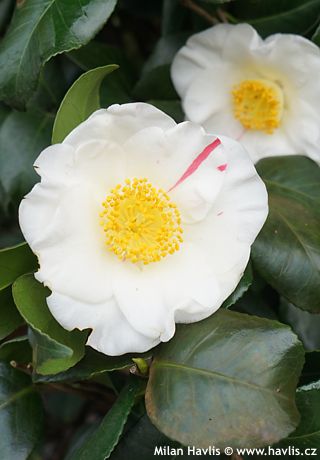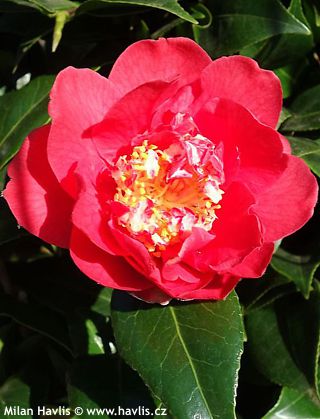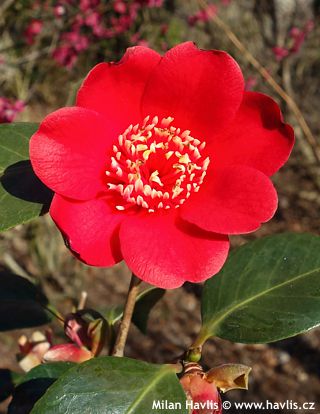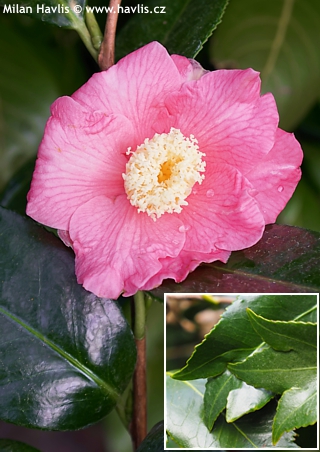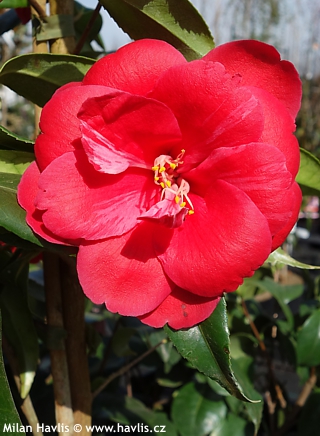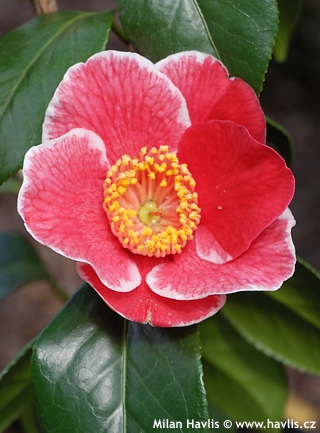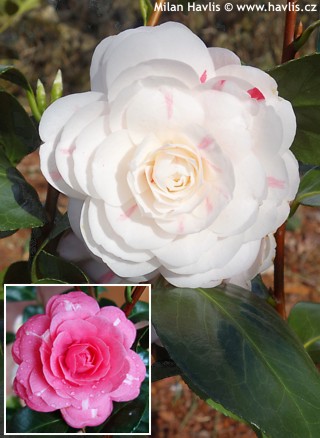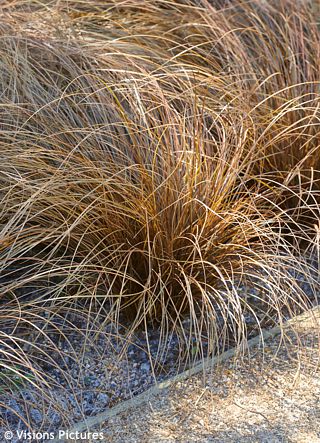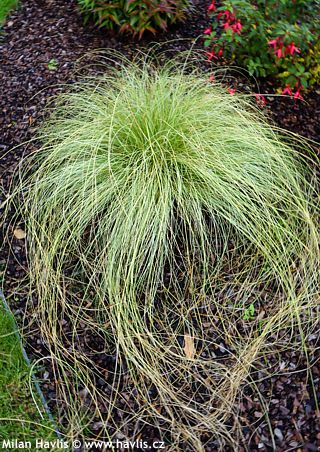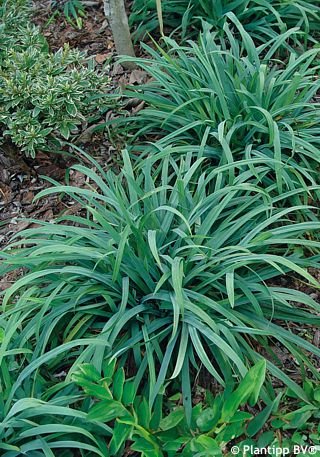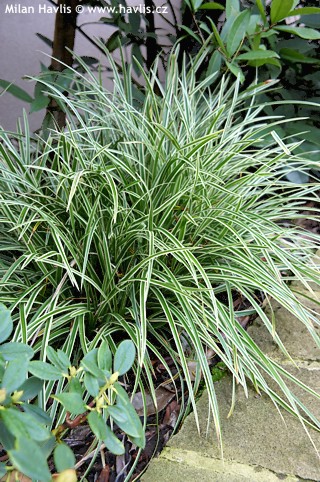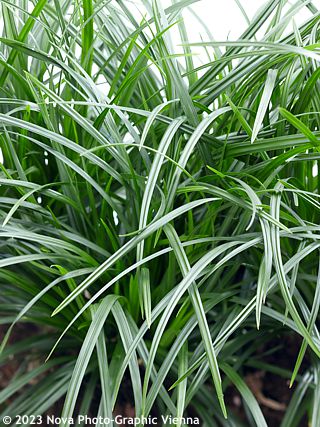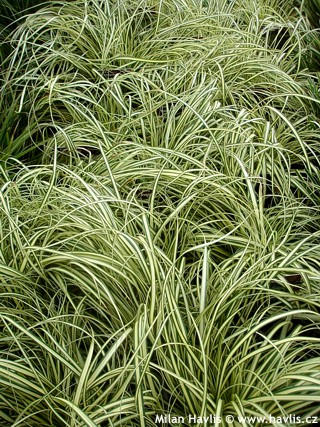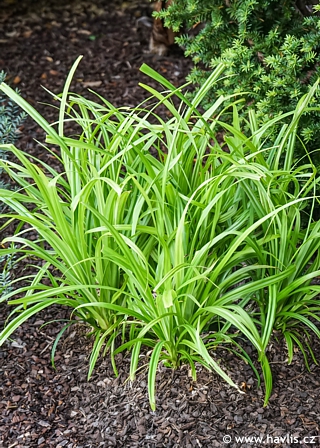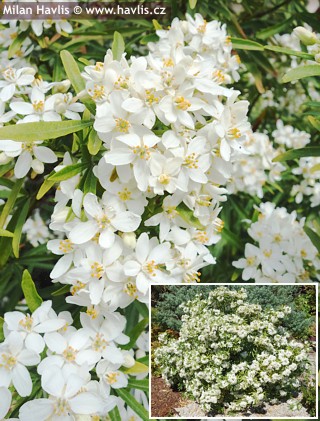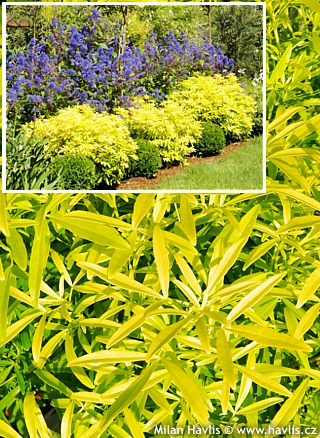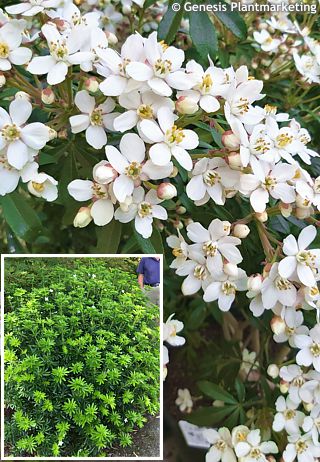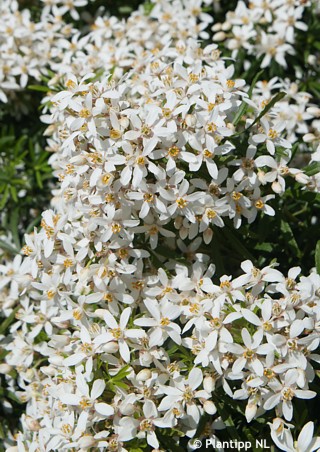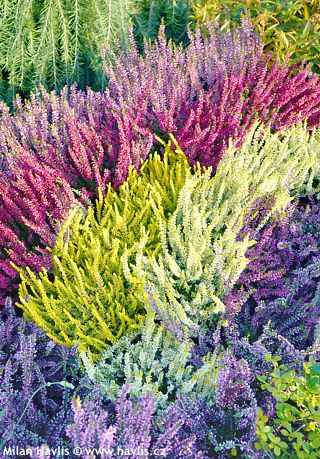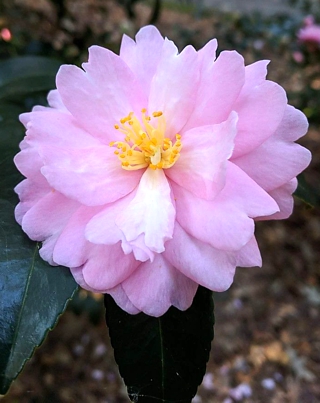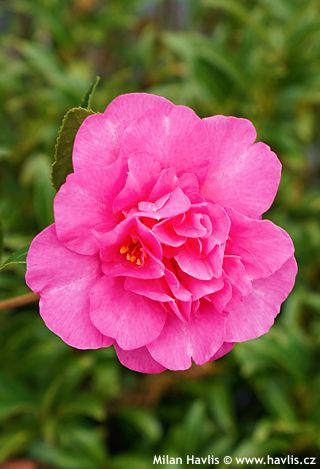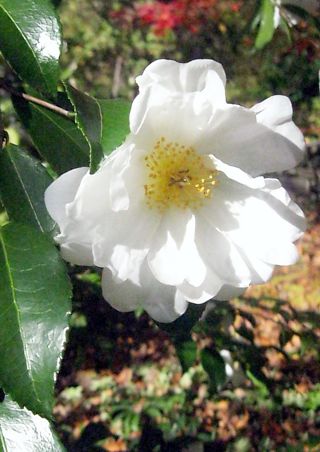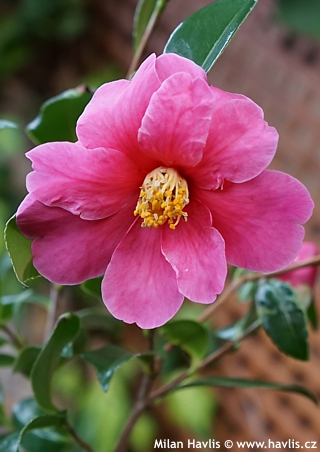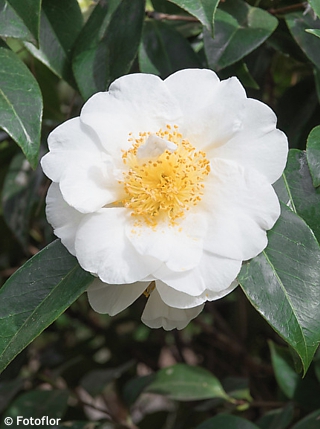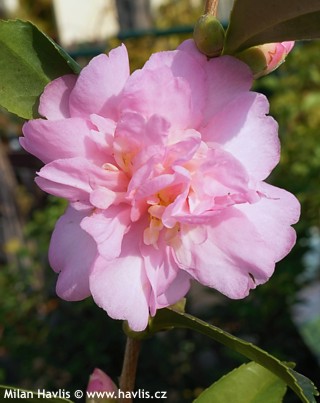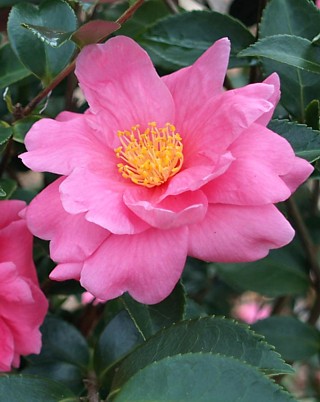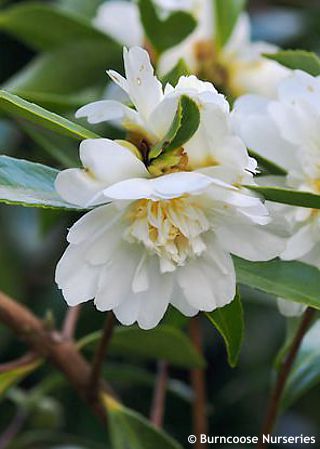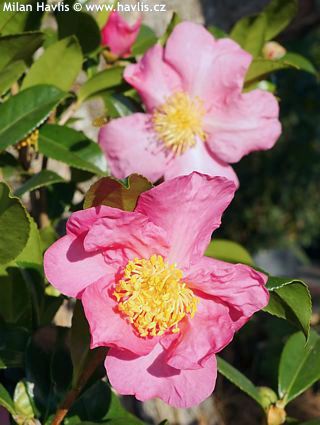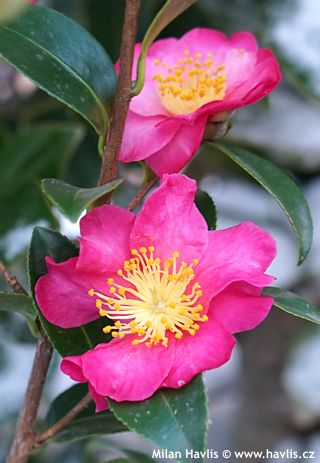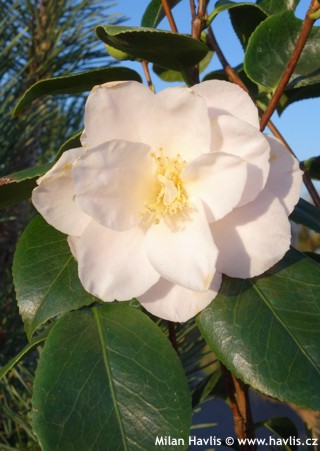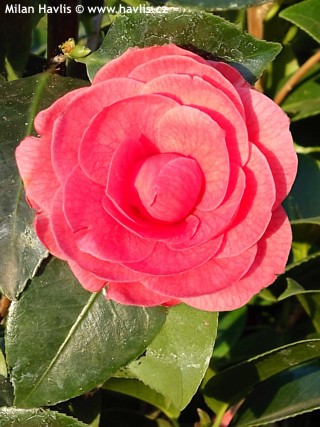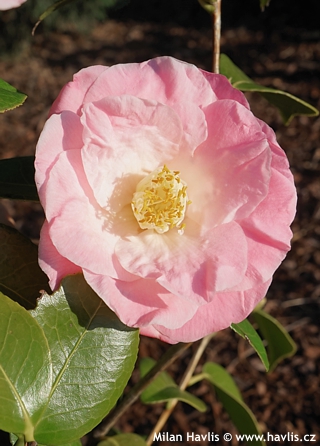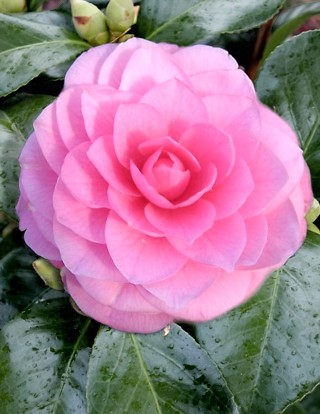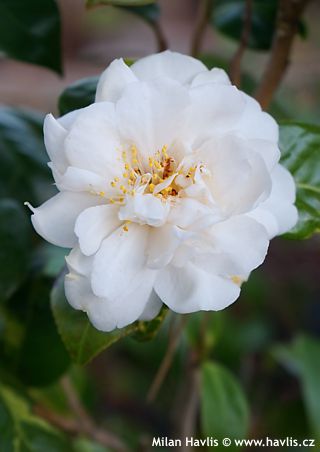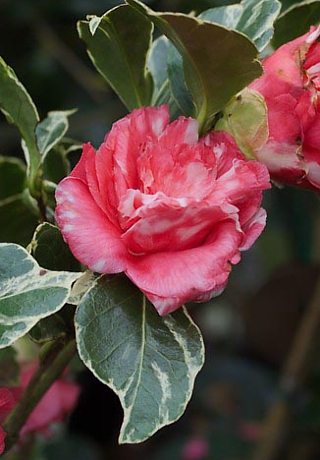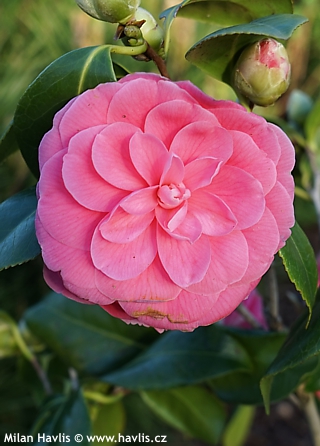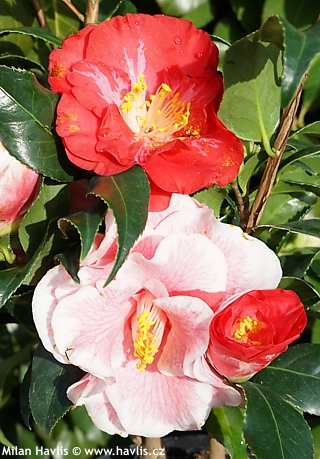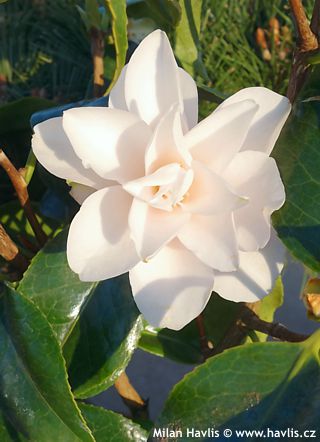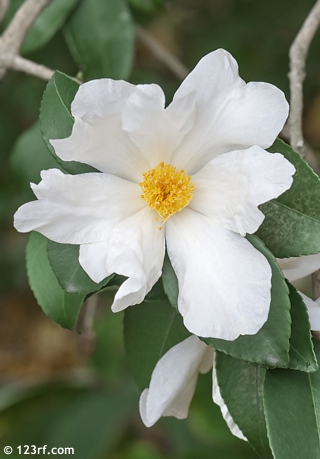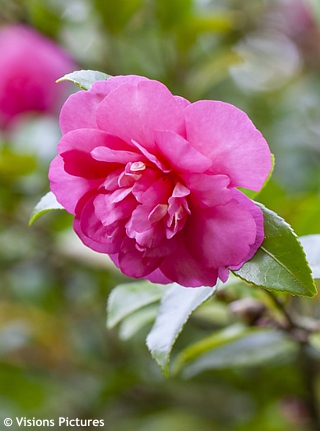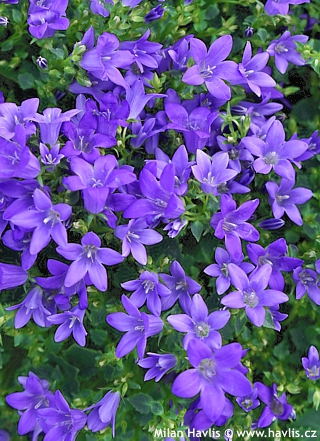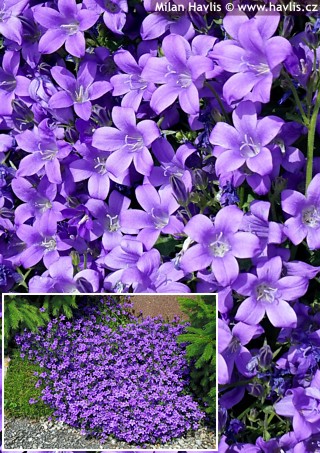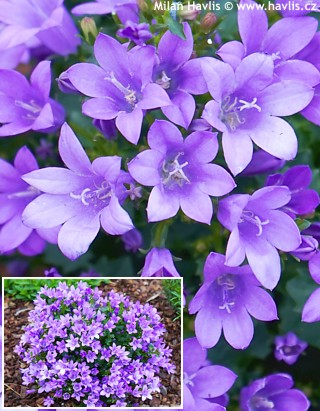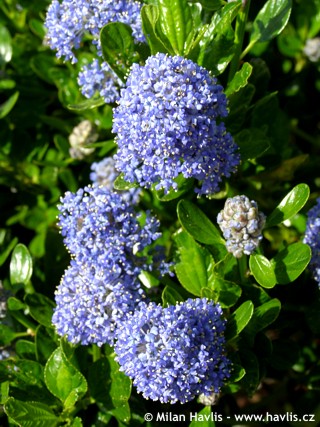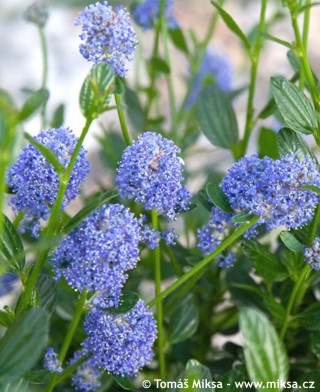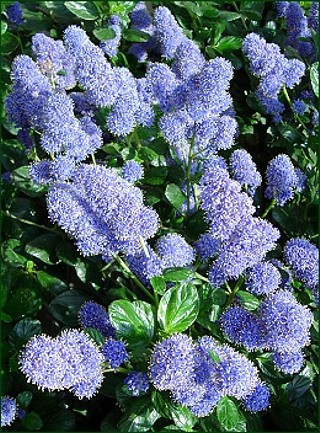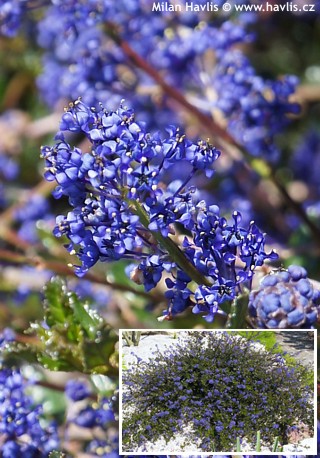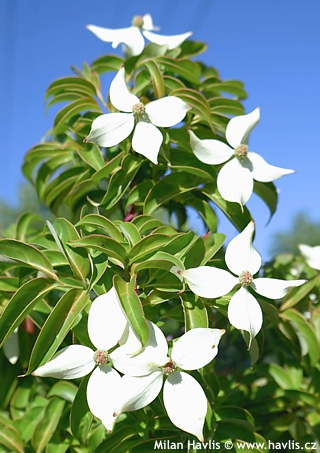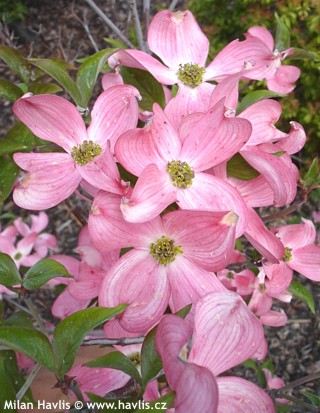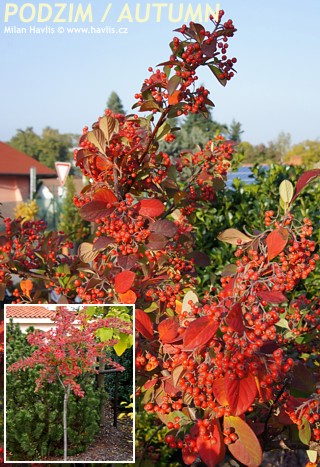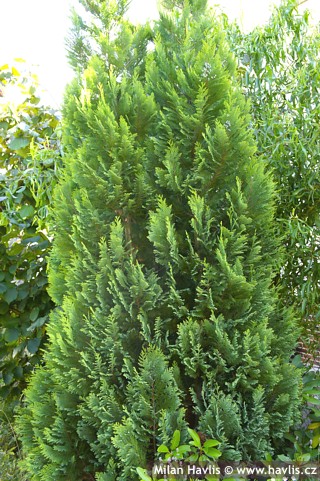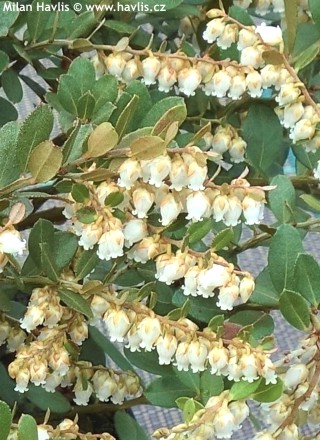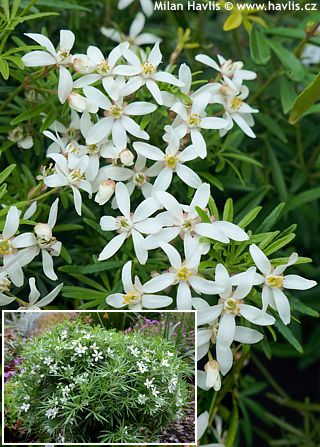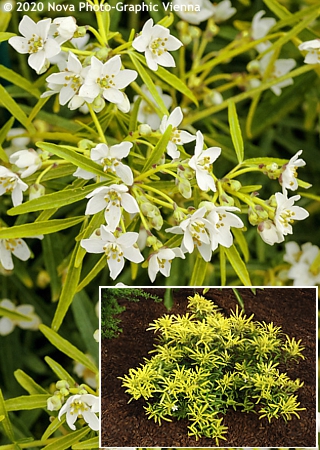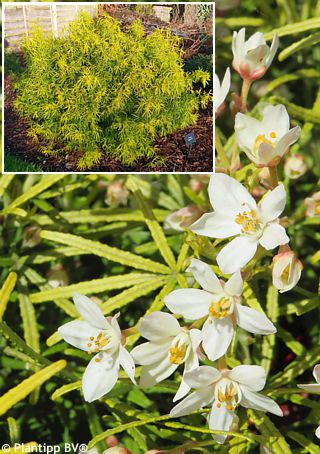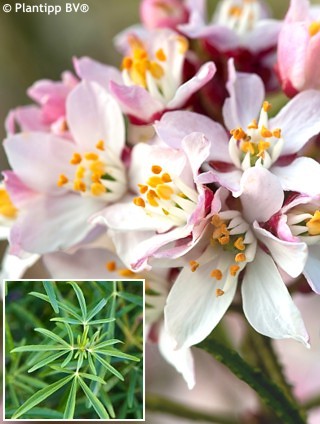CURRENTLY IN STOCK:
Arctic Dawn is an autumn flowering camellia bred by dr. Ackerman. It is a cross between a very hardy species camellia oleifera (cv. Lu Shan Snow) and camellia ‘November Pink’. It produces large, 10-12 cm across, semi-double to peony double, coral pink flowers with yellow stamens in the c ...

X - III

2 - 3m

1 - 1,5m

semi-shade to shade

6b (down to -21°C)

for zone 5+6

for zone 7
Ashton’s Pride is an autumn flowering camellia from the Ashton series bred by dr. Ackerman. It is a cross between a very hardy species camellia oleifera (cv. Plain Jane) and camellia sasanqua (cv. Santozaki). It produces medium large, 6-8 cm wide, soft pink, single flowers with yellow stamens ...

IX - XI

1,5 - 2,5m

1,5 - 2,5m

semi-shade to shade

6b (down to -21°C)

for zone 5+6

for zone 7
Black Lace is an older and proved variety of hardy camellia, in fact one of the best reds available. Its is a hybrid of c.reticulata and c.williamsii and has so far withstood -20°C. Its fully double, dahlia-like flowers are rich red, and bloom from early April for 6 to 8 weeks if the plant has enoug ...

IV - V

1,5 - 3m

1,5 - 2,5m

semi-shade to shade

7 (down to -23°C)

for zone 5+6

for zone 7
Ice Follies is a spring flowering hardy camellia from dr. Ackerman that first flowered in 1984 and was registered in 1992. It is a cross between c. x williamsii ‚November Pink‘ and c. oleifera. It produces large, 10-12 cm across, semi-double flowers. They are soft pink with a bit darker ...

IV - V

2 - 3m

1,3 - 1,5m

semi-shade to shade

7 (down to -23°C)

for zone 5+6

for zone 7
Pink Icicle is a showy, large-flowered hybrid camellia bred by dr. Ackermann from the United States National Arboretum. Its semi-double, soft pink flowers are 11 cm across, and open in April for 6-8 weeks. Leaves are evergreen, obovate, gently serrated at margins, deep green, and glossy. It grows fa ...

IV - V

1,8 - 2,5m

1,3 - 1,8m

semi-shade to shade

6b (down to -21°C)

for zone 5+6

for zone 7
Snow Flurry is an autumn flowering camellia bred by dr. Ackerman introduced in 1987 (Maryland, USA). It is a cross between a very hardy species camellia oleifera and camellia ‘Frost Princess’ which also has c. oleifera genes. It produces mid-sized, 6-8 cm wide, semi-double to fully doubl ...

X - XII

1,5 - 2m

1,5 - 2,5m

semi-shade to shade

7 (down to -23°C)

for zone 5+6

for zone 7
Spring Festival is one of the most valued hardy camellia hybrids (cuspidata hybrid) with double, pink flowers. They are not very large but appear in profusion from early April for 6 to 8 weeks if the plant has enough buds. These are formed from the previous year and need as long as half a year to ma ...

IV - V

1,5 - 3m

1 - 1,5m

semi-shade to shade

6b (down to -21°C)

for zone 5+6

for zone 7
Spring Frill is a spring flowering hardy camellia from dr. Ackerman that first flowered in 1985 and was registered in 1992. It is a cross between c. oleifera ‚Plain Jane‘ and c. vernalis ‚Egao‘. It produces large, 10-12 cm across, rose-like, double flowers with 34 frilled, ro ...

IV - V

2 - 3m

1,3 - 1,5m

semi-shade to shade

7 (down to -23°C)

for zone 5+6

for zone 7
Winter’s Sunset is an autumn flowering camellia from the Winter series bred by dr. Ackerman. It is one of the very rare varieties with variegated foliage. It produces small, bright pink, single, non-fragrant flowers with numerous yellow stamens in the centre from late October for 4-6 weeks.
L ...

X - XI

1,5 - 2,5m

1,5 - 2m

semi-shade to shade

6b (down to -21°C)

for zone 5+6

for zone 7
Showa-no-sakae is a winter camellia variety which is often classified as Camellia sasanqua. Its pretty flowers are small to mid-sized (6-8 cm), peony-like, semi-double to fully double, medium to deep pink. It begins to bloom according to the maturity of the buds and the weather conditions, usually f ...

I - XII

2 - 3m

1,5 - 2m

semi-shade to shade

6b (down to -21°C)

for zone 5+6

for zone 7
Adeyaka means Fascinating in Japanese, and the name was aptly chosen for this special Japanese camellia. It produces uniquely bell-shaped (but not nodding) flowers, 6-8 cm across when fully open, revealing multiple yellow stamens in the centre. The colour is rich velvet red, and flowers appear from ...

III - V

1,5 - 3m

1,5 - 2m

semi-shade to shade

7 (down to -23°C)

for zone 5+6

for zone 7
Alba Simplex is a spring flowering hardy camellia whose origin, despite the availability of multiple historical sources, is rather uncertain. One source claims that it comes from China but does not support it with any further details. Another source says it comes from Germany, registered in 1816, an ...

III - IV

2 - 3m

1,5 - 2m

semi-shade to shade

7 (down to -23°C)

for zone 5+6

for zone 7
Fire and Ice, or Fire’n’Ice is a rock’n’roll among hardy Japanese camellias, and possibly the largest flowering double, red, hardy camellia so far. Its flowers are 9-10 cm across, semi-double or fully double with shorter sepals, rich red with yellow stamens in the centre. Flo ...

III - IV

1,5 - 3m

1,5 - 2m

semi-shade to shade

7 (down to -23°C)

for zone 5+6

for zone 7
Kimberley is another old Japanese camellia variety from early 20th century, and awarded AGM by RHS in 1934. It produces beautiful, cup-shaped, rich scarlet red blossoms with a crown of yellow stamens. Flowering begins in April and continues for 6-8 weeks. Leaves are evergreen, narrowly obovate, gent ...

IV - V

2,5 - 3,5m

1,3 - 1,5m

semi-shade to shade

6b (down to -21°C)

for zone 5+6

for zone 7
Kingyo-tsubaki is another collectible gem among Japanese camellias. It was first described in Shirai-Bunko from 1789 and has so far received many names. Translation of its accepted Japanese name means goldfish camellia because its leaves are conspicuously divided at the apex into 3 tips, just like a ...

I - IV

1,5 - 2,5m

1,5 - 2,5m

semi-shade to shade

8 (down to -18°C)

for zone 5+6

for zone 7
Kuro Delight is a spring flowering hardy camellia from dr. Ackerman, perhaps the darkest red among the hardy varieties. It is a seedling of c. japonica ‚Kuro-tsubaki‘ x ‚Variety Z‘ that first flowered in 1987 and was registered in 1999. It makes medium-sized, 8-10 cm wide, se ...

IV - V

2 - 3m

1,3 - 1,5m

semi-shade to shade

7 (down to -23°C)

for zone 5+6

for zone 7
Sanpei-tsubaki is a gentle companion of commonly showcase Japanese camellias. It originated in Japanese prefecture Aichi in 1966 and was named after Mr. Sanpei Oguri, jr. (tsubaki means camellia). Its flowers are rather small but very handsome. They single, anemone-like, 6 or 7-petalled, rose pink w ...

I - IV

1 - 1,5m

1 - 2m

semi-shade to shade

8 (down to -18°C)

for zone 5+6

for zone 7
April Dawn is a chameleon hardy camellia producing variable flowers. They are large, 7-10 cm across, fully double, mostly white with rich pink stripes but a few turn solely dark pink with or without white stripes. They bloom from early April for 6 to 8 weeks while the shrub has enough buds. They are ...

IV - V

1,5 - 2,5m

1 - 1,5m

semi-shade to shade

7 (down to -23°C)

for zone 5+6

for zone 7
New Zealand sedge is an evergreen perennial grass, usually featuring brownish foliage. Bronze Form is an upright growing variety with thin leaves in pale reddish-brown colour with bronze or orange hues. Only side leaves arch a little. They combine well with broad-leaved perennials with contrasting f ...

0,3 - 0,4m

0,3 - 0,4m

full to partial sun

7 (down to -23°C)

for zone 5+6

for zone 7
Frosted Curls is a tufted, evergreen New Zealand hair sedge variety with narrow leaves that curls at tips. The leaves are light green in spring and summer, after flowering in late summer they turn light sandy yellow, and finally in winter they are soft bronze.
This sedge is a low-maintenance grass ...

0,2 - 0,3m

0,2 - 0,4m

full to partial sun

7 (down to -23°C)

for zone 5+6

for zone 7
BUNNY BLUE™ is a unique variety of creeping sedge, bred by Head Ornamentals Inc. from Seneca, South Carolina, USA, but surprisingly patented only in Europe (EU 36925 of 2014), not in the US. You can recognize it at once by its unusually blue-green leaves, which are conspicuously wider than on ...

0,2 - 0,3m

0,3 - 0,5m

semi-shade to shade

4 (down to -34°C)

for zone 5+6

for zone 7
Japanese sedge is a perfect companion plant for evergreen arrangements because this grass-like perennial remains in leaf all year long. The stiff and glossy leaves are dark green with wide, creamy-white margins.
It needs well-drained but constantly moist and humus-rich soil. When established it wi ...

0,3 - 0,4m

0,3 - 0,4m

full sun to shade

5 (down to -29°C)

for zone 5+6

for zone 7
Japanese grass sedge is an evergreen species of ornamental grass native to central and southern Japan. Irish Green is a pure green gem among variegated sedges. It makes 1-1.5 cm wide, strap-like leaves that are erect and only slightly arching, leathery but not so sharp, 30-40 cm long, dark green on ...

0,3 - 0,4m

0,3 - 0,4m

full sun to shade

5 (down to -29°C)

for zone 5+6

for zone 7
Japanese sedge is a perfect companion plant for evergreen arrangements because this grass-like perennial remains in leaf all year long. Evergold is a variety with linear, narrow leaves that are creamy yellow in the centre and have dark green margins. It is a well-behaved plant not spreading througho ...

0,2 - 0,3m

0,2 - 0,3m

semi-shade to shade

5 (down to -29°C)

for zone 5+6

for zone 7
Pendulous sedge is another beauty in this large sedge family. It is an evergreen grass whose native habitat covers almost all parts of Europe from Portugal to Sweden and can also be found in hot areas such as the Azores, northwest Africa, and even the near Middle East. Nowadays, you can also find th ...

V - VI

0,4 - 2m

0,4 - 1m

full sun to shade

4 (down to -34°C)

for zone 5+6

for zone 7
This variety called Aztec Pearl was bred by Peter Moore and introduced in 1989, when Hiller Nurseries celebrated their 125th anniversary. Its name perfectly describes this evergreen plant from the moment it begins to show flower buds. They are pearl-shaped, very light pink, and open into simple, sta ...

V - VI

1 - 2m

1 - 2m

full to partial sun

7 (down to -23°C)

for zone 5+6

for zone 7
Possibly every plant is capable of creating its gold-leaved mutation. No wonder Peter Moore helped choisya with this process when crossing choisya ternata Sundance with choisya arizonica pollen. It was named GOLDFINGERS and was registered in 1998 i.e. 14 years before Hillier Nurseries introduced the ...

V

1 - 1,3m

1 - 1,5m

full sun

7 (down to -23°C)

for zone 5+6

for zone 7
GREENFINGERS® is a large-leaved Mexican orange variety from 2019, developed by Peter Catt from Liss Forst Nursery in Liss, Hamshire, England. It bears evergreen, softly leathery, glossy, palmate leaves divided into 7 leaflets, which have a distinct, spicy aroma when crushed, but do not use them ...

V

1 - 2m

1 - 2m

full sun

7 (down to -23°C)

for zone 5+6

for zone 7
WHITE DAZZLER is a follow-up choísie to Aztec Pearl from Peter Moore, introduced in 1991. It produces masses of simple, star-shaped, pure white, and very fragrant flowers with yellow stamens in May and June. Their perfume is very similar to orange flowers hence its name Mexican orange or Mexican bl ...

V - VI

1 - 2m

1 - 1,5m

full sun

7 (down to -23°C)

for zone 5+6

for zone 7












